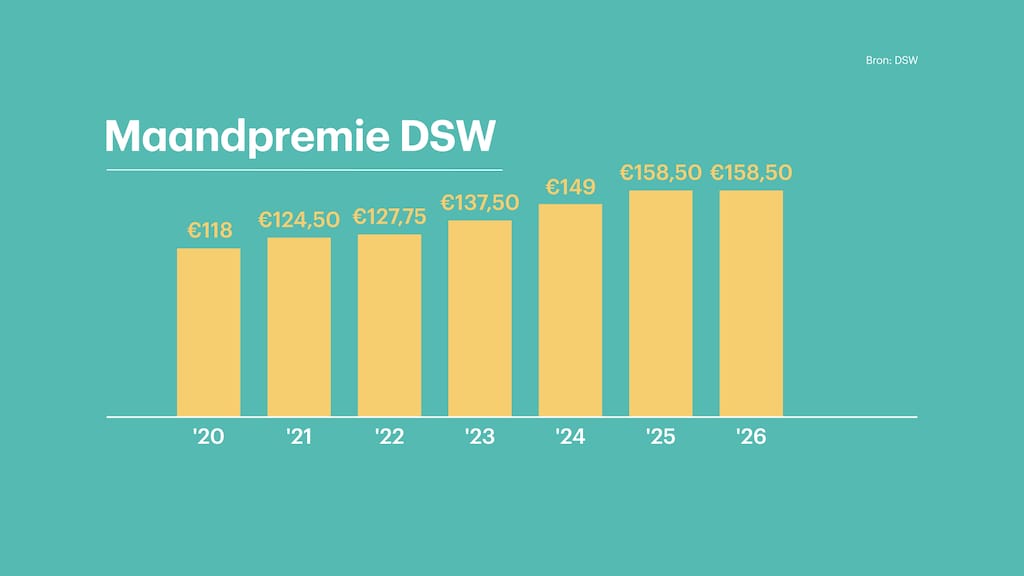Unusual: the first new health insurance premium is known and it is not increasing

The Budget Memorandum anticipated an average premium increase of €3 per month for mandatory health insurance. DSW is preventing this premium increase with a financial windfall from the government.
The government's Health Insurance Fund received €2.4 billion more than it spent on healthcare. This windfall is being returned to health insurers, who can use it, for example, to limit or eliminate health insurance premium increases. DSW director Aad de Groot says that if this amount hadn't been available, the monthly premium would have risen by approximately €6.
Each health insurer sets its own premium. The graph below shows how DSW's basic health insurance premiums have risen in recent years:

Other health insurers will announce their premiums later. These premiums can also go up or down; that's up to the insurer.
DSW: 'Politics, make choices'DSW director De Groot makes an urgent appeal to national politicians: "Don't be blinded by this one-time windfall, but make choices now to keep healthcare affordable and accessible in the long term."
RTL Nieuws reported last year that more policyholders are making payment arrangements with their health insurer because they cannot afford their healthcare costs.
According to DSW, the current healthcare system focuses too much on making sick people better, while health is determined for 80 percent by factors such as financial security and living environment.
"Only twenty percent of people's health is directly influenced by healthcare itself. As long as the system focuses almost exclusively on that twenty percent, we will continue to treat symptoms instead of addressing the causes," says De Groot.
Healthcare costs are rising every year due to improved medical treatments, an aging population, inflation, and rising wages for general practitioners, hospital staff, and pharmacy staff. According to the Budget Memorandum, total healthcare costs will rise to €114.1 billion in 2026. This represents a quarter of the entire government budget.
In the video below, reporter Bart Reijnen explains how the government would distribute the money if the budget were 100 euros:
The healthcare allowance will be capped at €131 per month in 2026, and the deductible will remain at €385. The government planned to lower the mandatory deductible to €165 in 2027 and charge a maximum of €50 per hospital treatment.
Lowering your deductible on loose screwsThis bill is in jeopardy due to the fall of the cabinet. The hot potato is being lifted over the October 29th parliamentary elections. The Council of State advised in June against lowering the deductible. It will cost €4.6 billion. This will increase health insurance premiums by approximately €200 and will be detrimental to people with low incomes and low healthcare costs.
Dental and orthodontic rates will decrease in 2026. Sounds good, but according to DSW, this will have little impact on the premium for supplementary dental insurance.
Dental insurance pays out up to a maximum amount, for example, €1,000 or €2,000 per year. Due to lower dental care rates, consumers are less likely to reach the maximum amount. However, a crown or brace remains expensive, which means the premium for supplementary dental insurance isn't getting any cheaper.
DSW will announce the premiums for supplementary insurance for physiotherapists and dentists in mid-October. The premium for basic health insurance from all health insurers will be announced by November 12th. The premiums for supplementary insurance will follow by November 19th. Switching health insurance is possible until December 31, 2025.
Be the first to know the latest news




